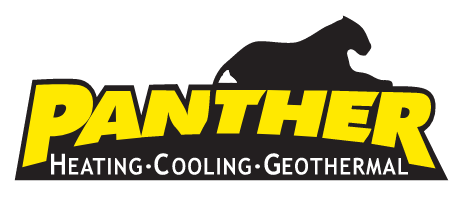Why Does My Furnace Make Noise

It can be worse than scraping your nails down a chalkboard or listening to a dog barking incessantly. We’re talking about your noisy furnace and different kinds of furnace noises. When you turn your furnace on, you may hear a wide range of noises, such as scraping, squealing, whistling, banging, and rattling. Some noises are quiet, while others are obnoxious. All noises only get worse with time.
Remember, loud furnace noises signify that something is wrong with your system and requires attention immediately. So, it is important to know which noises your furnace is supposed to make and which ones indicate that there could be trouble. Below, we look at all the good and bad reasons why your furnace makes noises and when you should schedule HVAC repair in South Carolina.
Normal Furnace Noises
Before we get to the problem noises, let’s discuss some of the noises your furnace is supposed to make. After all, it is important to know that your furnace turns on and runs consistently through each cycle.
Power-Up Noise
Nearly every old or new furnace makes a noise when coming on. The power-up noise can sound like a knocking or a split-second deep thud. What’s causing it? In most cases, it’s the sudden burst of air from the blower and the motor. In most cases, a moving part is simply moving around during startup.
Humming
Nearly every home furnace in existence makes a slight, consistent humming low noise. Two things cause the noise. First, the blower makes noise due to constant, fast rotation. The second noise occurs when the air rapidly flows through the air ducts and out the vents. Don’t worry if you hear these noises.
Other Normal Noises
Since furnace brands are unique, they may make different noises, such as chirping, cracking, and pinging. Most of these noises occur from metal heating up, cooling down, or coming into contact with other furnace components. The occasional noise at a nominal noise level is normal. Chronic loud noises are not normal and need attention.
Furnace Noises You Should Do Something About
Now that we’ve covered a few normal furnace noises, it’s time to look at some noises that should concern you.
Scraping
A scraping noise most likely means a fault in the furnace’s blower wheel. This noise will sound like metal parts rubbing together or nails scratching a chalkboard. If your furnace is making a scraping noise, this may be a sign of worn-out ball bearings. On the other hand, the blower wheel may have also come loose.
Squealing
A high-pitched squeal from your furnace usually results from an issue with the blower. The blower in your furnace is powered by a motor with bearings that can wear out because of age or overheating. Overheating is usually caused by dirt buildup or a bad capacitor. In many cases, a simple furnace cleaning can stop the squeaking noise.
Whistling
Whistling furnaces can be shrill and loud or subtle, depending on the type of furnace and the nature of the issue. Try to identify where the sound is coming from. If you hear whistling in one room but not in others, it may be a blockage or air leak in your air ducts or a partially closed air vent rather than an issue with the furnace itself. Whistling is often caused by air getting through tight spaces.
Banging
A loud banging noise is a delayed ignition caused by dirty furnace burners. The dirt keeps the burners from igniting the gas. As a result, the gas builds. Once the gas ignites it makes a loud banging noise. It’s a mini-explosion in the furnace. If this happens more than once, contact an HVAC company in South Carolina. The problem could be serious.
Rattling
A bang or rattling sound from your furnace could mean that you have a cracked heat exchanger, which is the biggest cause of carbon monoxide leaks. A rattling sound before the blower comes on almost always means a cracked heat exchanger. If there is a crack in the heat exchanger, you need to address the problem right away.
Rumbling
A rumbling sound is often caused when fuel continues to burn in the combustion chamber even though the burners are turned off. A rumbling sound shouldn’t be left unresolved. If your furnace starts making a rumbling sound, call a furnace technician immediately to prevent the risk of carbon monoxide poisoning.
Buzzing
If you hear a loud humming or buzzing sound coming from your furnace, it usually means your furnace has an electrical problem. The most common electrical issues that cause a humming or buzzing sound include a failing blower motor capacitor or an aging or unlubricated blower motor. In many cases, lubricating moving parts can eliminate buzzing.
Clicking
Loud clicking sounds can be heard when inducer blowers and fan shafts are clogged by buildup or when bearings are worn out. Bearings on the main blower motor might click as the furnace runs because the shaft is rusted or dirty. Cleaning and lubricating the fan shaft will help fix the problem and prevent premature wear.
Where Can I Find the Best HVAC Repair Near Me?
If you need fast, reliable HVAC service, contact Panther Heating and Cooling today. We offer complete HVAC services in Rock Hill, South Carolina. Contact us today for an in-home assessment and estimate. We are South Carolina’s preferred HVAC repair service company.
To schedule HVAC service in Rock Hill, South Carolina, fill out our contact form or call us.
Follow our Facebook page for more updates.
Need HVAC Service?
Contact the experts at Panther Heating and Cooling.
Call us at (803) 327-2700!

